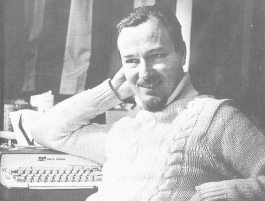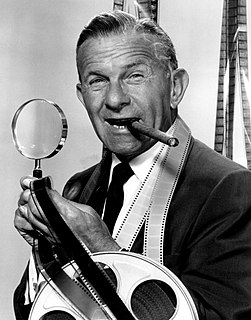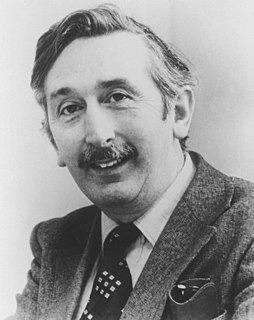A Quote by H. G. Wells
The only true measure of success is the ratio between what we might have done and what we might have been on the one hand, and the thing we have made and the things we have made of ourselves on the other.
Related Quotes
We've been slaves to our tools since the first caveman made the first knife to help him get his supper. After that there was no going back, and we built till our machines were ten million times more powerful than ourselves.
We gave ourselves cars when we might have learned to run; we made airplanes when we might have grown wings; and then the inevitable. We made a machine our God.
The magician seemed to promise that something torn to bits might be mended without a seam, that what had vanished might reappear, that a scattered handful of doves or dust might be reunited by a word, that a paper rose consumed by fire could be made to bloom from a pile of ash. But everyone knew that it was only an illusion. The true magic of this broken world lay in the ability of things it contained to vanish, to become so thoroughly lost, that they might never have existed in the first place.
We ask [ of the computer ] not just about where we stand in nature, but about where we stand in the world of artefact. We search for a link between who we are and what we have made, between who we are and what we might create, between who we are and what, through our intimacy with our own creations, we might become.
Man's maker was made man that He, Ruler of the stars, might nurse at His mother's breast; that the Bread might hunger, the Fountain thirst, the Light sleep, the Way be tired on its journey; that Truth might be accused of false witnesses, the Teacher be beaten with whips, the Foundation be suspended on wood; that Strength might grow weak; that the Healer might be wounded; that Life might die.
For although a man is judged by his actions, by what he has said and done, a man judges himself by what he is willing to do, by what he might have said, or might have done—a judgment that is necessarily hampered, not only by the scope and limits of his imagination, but by the ever-changing measure of his doubt and self-esteem.
In history there are no control groups. There is no one to tell us what might have been. We weep over the might have been, but there is no might have been. There never was. It is supposed to be true that those who do not know history are condemned to repeat it. I don't believe knowing can save us. What is constant in history is greed and foolishness and a love of blood and this is a thing that even God--who knows all that can be known--seems powerless to change.
Jesus offered a single incentive to follow himto summarize his selling point: 'Follow me, and you might be happy-or you might not. Follow me, and you might be empowered-or you might not. Follow me, and you might have more friends-or you might not. Follow me, and you might have the answers-or you might not. Follow me, and you might be better off-or you might not. If you follow me, you may be worse off in every way you use to measure life. Follow me nevertheless. Because I have an offer that is worth giving up everything you have: you will learn to love well.'
It seemed to me the basic definition of mental illness, this persistent, painful inability to simply be with someone else. It might be lifelong, or it might descend like a sudden catastrophe, this blankness between ourselves and the rest of the world. The blankness might not even be obvious to others. But on our side of that severed connection, it was hell, a life lived behind glass. The only difference between mild depression and severe schizophrenia was the amount of sound and air that seeped in.
The periods between my 11th and 18th years remain the most vivid in my memory because this was the time of my first attempts at experimentation, which might never have been made had I lived in the city. I made hazardous investigations of the principles of flight, launching myself from the tops of haystacks with a homemade glider.


































